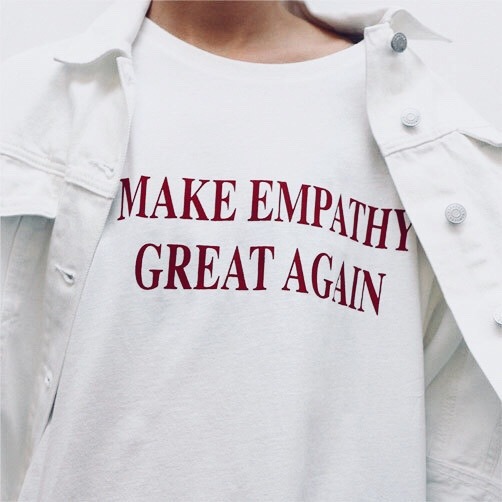I’ve been staring at this photo for a while now, each time it appears in my picture folder. And every time I read about Donald Trump and his “Make America Great!” crusade, I think of this photo. It is a brutal crusade. A quick search defines a crusade as either “a series of medieval military expeditions made by Europeans to recover the Holy Land from the Muslims in the 11th, 12th, and 13th centuries” or“a vigorous campaign for political, social, or religious change”.
In Trump’s case it’s a potent mixture of both, an alchemy of fearmongering and hate enforced by state and social institutions to repel the Muslims (which includes Mexicans and other South American refugees, highly skilled professionals from Middle Eastern countries, climate change advocates, transgender people, paid prostitutes…and the list goes on). All this to brutally enforce a specific political ideology of greed, exclusion and macho-bullying with components of social engineering and religious condonation (https://bodytheology.co.za/2018/10/03/the-violence-of-words/ ).
So yes, perhaps I’m a bit angry. I’m angry to be a witness of a person using power as a blunt force instrument against the Other, smaller, gentler, more decent person at the cost of empathy, care and embracing each other’s humanity. In this process he exploits the fear, financial insecurity and feeling of insignificance of most of his followers. But it’s not only over there – it’s also right here. It’s been happening in the new South Africa, and brutally and crudely over decades of oppression and centuries of exploitation. There are many trampled bodies left floundering in its wake.
The erosion of empathy is not only the responsibility of the young. It’s not only technology which estranges us from “body-to body, face-to face and voice-to voice contact” (https://bodytheology.co.za/2018/11/15/the-erosion-of-empathy/ ). It’s also the result of political and religious ideologies enforced by foolish men (as in not acting with wisdom) keeping people apart. It is the effect of historical trauma passed on from one brutalised generation to the next, the “thousands of small stories still adrift in the sea of trauma”. It is the effect of diminishing networks and households of care as a result of migrant labour, poverty, but also rampant individualism (https://bodytheology.co.za/2018/10/17/ubuntu-and-the-body-as-narrative-principles/ ). And it is the effects of the power of certain types of men and their dominant and abusive masculinities on children, women and other men.
How do we reverse the erosion of empathy to make empathy great again? It definitely has to do with the exercise of power in political, social and religious structures, but somehow it starts with body- to body, face-to-face, voice-to voice contact – to overcome the things that separate us, to embrace the Otherness we fear.

One comment